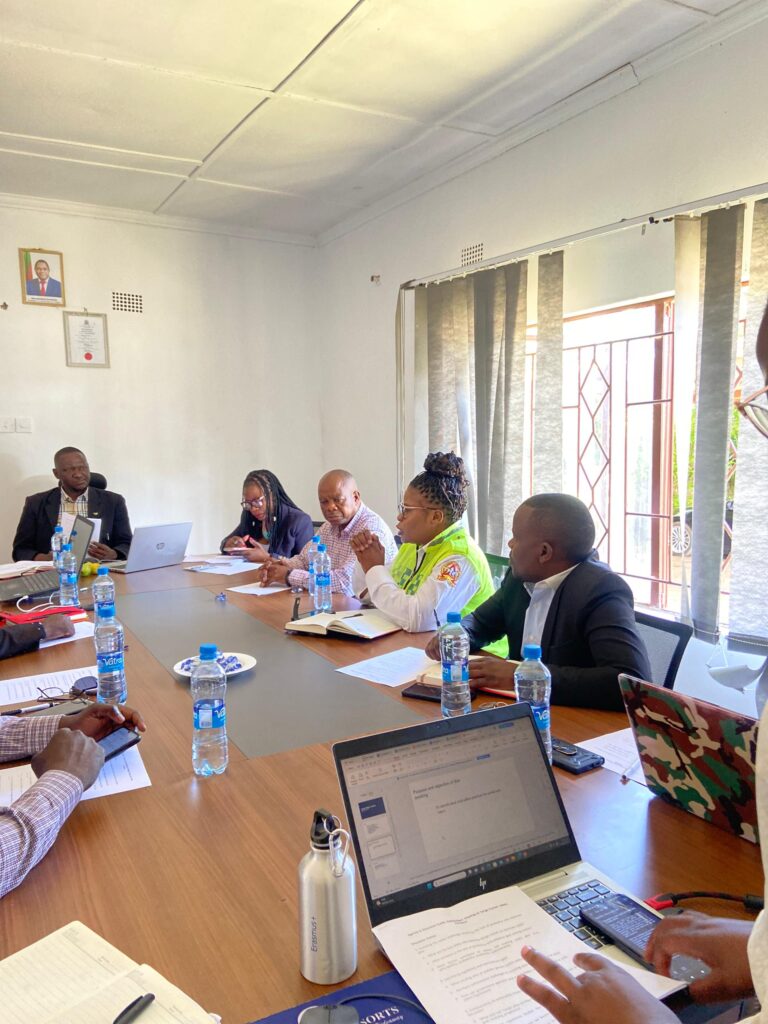The Zambia Road Safety Trust (ZRST) successfully hosted a productive stakeholders’ meeting on February 10, 2025, in Lusaka to discuss the increasing safety concerns for cyclists and riders, particularly those involved in courier services. The meeting served as a platform for key stakeholders to deliberate on challenges faced by cyclists, regulatory gaps, and collaborative solutions to improve road safety.

One of the critical concerns raised was the lack of protective and reflective gear among cyclists and riders, which significantly reduces their visibility on the road. Many cyclists continue to navigate busy roads without appropriate safety equipment, putting them at risk of accidents. Additionally, the limited road space and absence of designated cycling lanes have further exacerbated the dangers, making it difficult for cyclists to coexist safely with motorists. Another pressing issue discussed was the lack of training and knowledge among cyclists regarding road signage, the Highway Code, and best cycling practices. Many riders remain unaware of the appropriate side of the road to use, leading to unnecessary conflicts with other road users.
Stakeholders acknowledged the regulatory gaps that have hindered the enforcement of cyclist safety measures. While the Highway Code provides clear guidelines for cyclists, enforcement remains weak, allowing for non-compliance and unsafe cycling habits. Participants stressed the need for better collaboration among government agencies, private stakeholders, and civil society organizations to raise awareness and strengthen adherence to road safety regulations. A unified approach was proposed to ensure sustained enforcement and to create a culture of responsibility among cyclists.
The meeting also focused on identifying practical solutions to improve safety for cyclists and riders. One of the key recommendations was to directly educate cyclists on the Highway Code through workshops and training programs. Participants suggested raising awareness by integrating road safety topics into school curricula, using local media campaigns, and establishing educational programs targeting cyclists. Community and village leaders were also identified as crucial partners in disseminating road safety knowledge at the grassroots level.
Another major proposal was to engage with companies such as Yango and other courier service providers to ensure that their cyclists and riders receive proper safety training and have access to protective gear. Stakeholders also explored the possibility of collaborating with local businesses to facilitate the distribution of affordable safety gear, making it more accessible to cyclists who might not afford high-quality protective equipment. These public-private partnerships were seen as a crucial step towards improving overall safety standards for cyclists and riders in Zambia.
The meeting was attended by representatives from various organizations, including the Road Transport and Safety Agency (RTSA), Passengers, Pedestrians & Cyclist Association of Zambia (PAPECA), Road Safety Ambassadors Zambia, Talk Road Safety Foundation, Commuter Rights Association of Zambia, Safety for People on the Move, Lusaka City Council, Zambia Agency for Persons with Disabilities (ZAPD), and the Public Transport Operators Cooperative. Their collective input was instrumental in shaping the discussion and proposing actionable steps towards safer roads for cyclists.
Key takeaways from the meeting included an appeal to Yango to commit to providing safety gear, training programs, and qualification standards for cyclists engaged in courier services. RTSA and the Zambia Police were encouraged to strengthen enforcement mechanisms through the introduction of a cyclist pass and regular inspections of safety gear. The stakeholders also emphasized the need to establish legislative measures, including drafting a statutory instrument aimed at enhancing cyclist safety regulations.
An important aspect of the discussion was the need to gather accurate data on cycling-related accidents. By collecting and analyzing data, stakeholders will be able to implement practical and sustainable solutions that effectively address the safety concerns of cyclists and riders. The commitment from all attendees reflected a shared determination to make Zambia’s roads safer for cyclists and ensure that road safety remains a priority.
The Zambia Road Safety Trust remains committed to working closely with all stakeholders to implement these solutions and create a safer environment for cyclists and riders across the country. This meeting marks a significant step towards achieving that goal, reinforcing the collective responsibility of both the public and private sectors in safeguarding the lives of those who rely on bicycles and motorcycles for their livelihood and daily commute.

